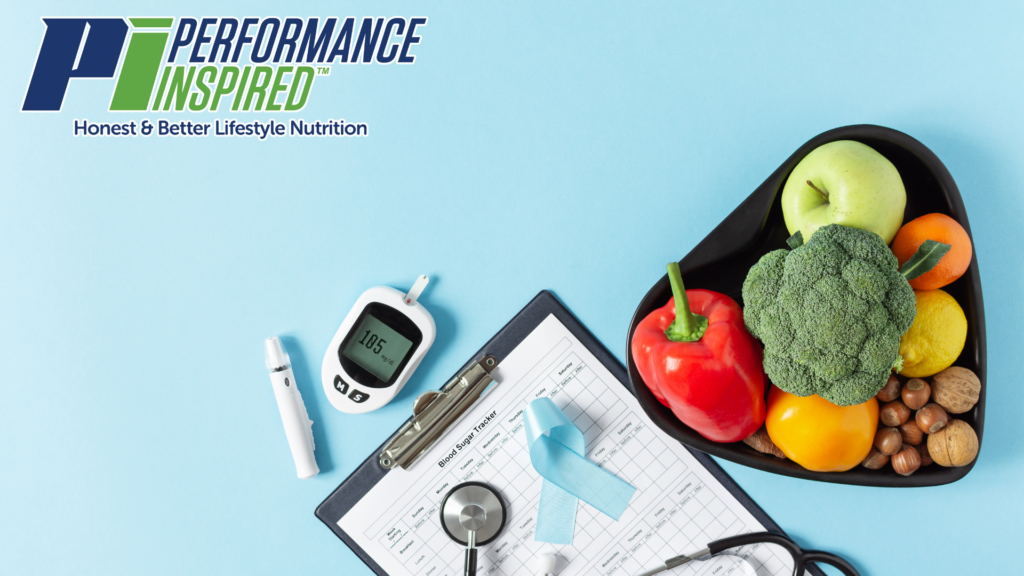The Importance of Protein for Those on Type 2 Diabetes Medications

Type 2 diabetes—a disease that occurs when the pancreas produces insulin but the body cannot effectively use it—affects approximately 35 million people in the US. If untreated, diabetes can lead to kidney disease, cardiovascular disease, vision problems or loss, damage to the organs and blood vessels, and other neurological conditions.
Medications abound, and you have likely seen commercials or heard about some of them, including Ozempic, Wegovy, and Mounjaro. These medications are all in a class of drugs called glucagon-like peptide 1 (or GLP-1). The Mayo Clinic explains that these drugs “mimic the action of a hormone called glucagon-like peptide 1 [and that] when blood sugar levels start to rise after someone eats, these drugs stimulate the body to produce more insulin. The extra insulin helps lower blood sugar levels.”
GLP-1 drugs have become so popular that, according to the latest KFF Health Tracking Poll, about one in eight adults admits to having taken them.
One of the touted benefits of these drugs is that the patient loses quite a bit of weight while on them. Columbia University’s Department of Surgery explains that patients lose an average of 10-20 percent of their body weight on this class of drugs. This can be very tempting for some people, especially those who carry an excessive amount of weight and who want to lose it.
But recent research has raised some concerns, and doctors and researchers are now cautioning patients about the effects this sudden weight loss can have on their bodies. According to Healthline, “While weight loss can bring about health benefits, losing weight rapidly can also cause a decrease in muscle mass, lessen bone density, and lower your resting metabolic rate, leading to sarcopenia—the gradual loss of muscle mass, strength, and function.”
Losing muscle mass and bone density can be extremely detrimental, especially for older people, who already face bone loss as they age.
If you take any of these medications, do not despair. Talk to your doctor about any concerns you have, and then devise a plan for changing some of your lifestyle habits to ensure that you do not lose muscle mass or bone density. Your doctor or nutritionist will likely explain the importance of adding more protein into your diet and beginning resistance training, if you are able. This two-pronged effort will be crucial.
Healthline explains the importance of adding more protein into your diet, stating that “dietary trials with higher protein result in less lean mass loss and more fat mass loss compared to lower protein intake.” It reports that dieticians are now recommending that people on these meds consume 25-30 grams of protein per meal.
If that seems like a lot to you, don’t worry. You simply need to start paying attention to nutrition guidelines and to the protein content in your foods and replacing foods high in carbs with foods high in protein. When you do so, you will likely find that consuming that amount of protein is easier than you think.
Some of the foods with the highest protein content include chicken, lean beef, almonds, cottage cheese, eggs, lentils, and quinoa. And of course there is a wide range of food you can add to your diet to increase your protein intake. Performance Inspired has a helpful article about adding more protein to your diet and offers many easy ways to do this.
In addition, PI’s products are an excellent way to help you add protein into your diet, especially when you’re on the go. We offer several types of protein powder, including Performance Whey Protein, Isolate Whey, and Diet and Energy Ripped Whey, which all provide 25 grams of protein per serving. For those who cannot consume milk products, we have a Plant-Based Protein powder that offers 20 grams of protein. Plus, we created a specially formulated Mass Gainer, which offers a whopping 50 grams of protein per serving! And if you’re looking for a protein bar, we have you covered there as well. Our Inspired-Bar 2.0 has 20 grams of protein per bar and can be easily taken wherever you go.
But in order to fully take care of yourself and to keep your body from losing muscle mass and bone density, doctors also recommend adding resistance or weight training to your exercise routine. Why? Strength and resistance training preserve “muscle during weight loss so that you’re losing fat instead of muscle mass.” It increases your metabolism, so your body burns more calories during the day, even when you’re not exercising. And finally, strength training improves your mobility and overall health.
If you have a gym membership, start lifting some weights when you go. If you do not have a membership, buy some free weights to use at home.
Taking care of your body by getting your blood sugar levels under control is vital for your health, but if you are taking a GLP-1 drug, understand that you must become proactive about muscle and bone loss. Increase your protein, add strength training into your weekly routine, and begin a healthier overall diet. When you take these steps, you will find that not only do you feel healthier, but you are healthier.

